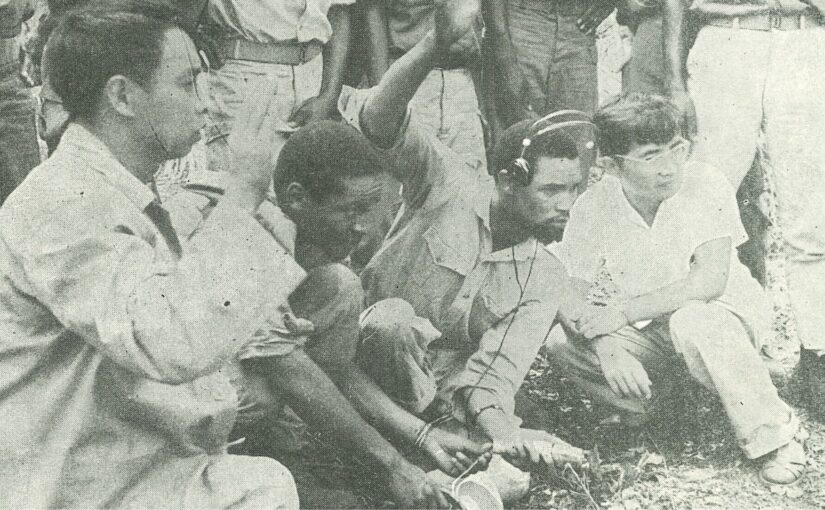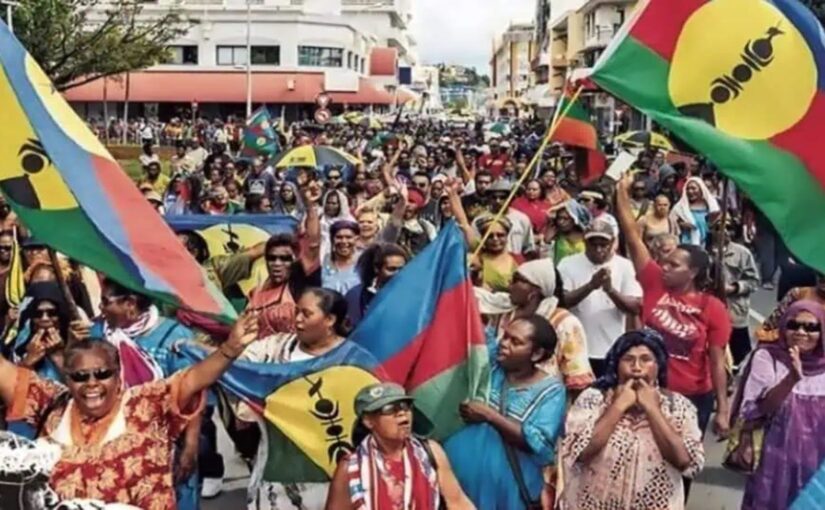We are very pleased that our article. ‘Quiet Please! We’re decolonising’, written by Dr. Sahidi Bilan and Rob Lemkin, which outlines the long history of internationalist support for the revolution in Niger on the part of the People’s Republic of China, has been translated into French and printed in Le Sahel Dimanche, one of the country’s leading newspapers, which is published by the state-owned press agency, Office National d’Édition et de Press (ONEP).
We reprint the French language version, as published by Le Sahel Dimanche, for the benefit of our French-speaking readers.
Lorsque le gouvernement militaire du Niger a expulsé, l’année dernière, les troupes et les diplomates de l’ancienne puissance colonisatrice française, certains Nigériens y ont vu la reprise d’un processus brutalement interrompu en septembre 1958, Il y a de cela soixante-six ans, à la veille de l’indépendance, le premier gouvernement africain du Niger. Le conseil était dirigé par le parti Sawaba (Sawaba signifie « libération » et « bien-être » dans la langue principale du Niger, le haoussa ) et son Premier ministre était un syndicaliste décolonial charismatique appelé Djibo Bakary.
Le renversement du Sawaba par la France en 1958 fut le premier coup d’État moderne en Afrique. En peu de temps, le parti fut proscrit et contraint à la clandestinité ; il a ensuite créé un mouvement de résistance avec le soutien d’États anti-impérialistes africains comme le Ghana et l’Algérie et a développé un important programme de formation à la guérilla avec l’aide du bloc socialiste, notamment de la République populaire de Chine.
‘’Silence ! On décolonise !’’ est le titre du grand livre de Djibo Bakary à la fois autobiographie et manifeste du programme radical de décolonisation dont il était l’un des principaux concepteurs. Nous utilisons son titre pour explorer une meilleure compréhension du coup d’État militaire du 26 juillet 2023 survenu au Niger suivi d’une rupture unilatérale des accords militaires avec la France, puis avec les États-Unis d’Amérique. Il est essentiel de se demander pourquoi aucun coup d’État militaire dans l’histoire post-indépendance du Niger (et il y en a eu huit, dont cinq ont réussi) n’a bénéficié d’un tel soutien populaire que celui du CNSP (Conseil national pour la sauvegarde de la patrie).
Cet article donne d’abord une brève introduction à l’histoire et à la vision du Sawaba pour le Niger ; nous nous concentrons ensuite sur les liens avec la Chine, en particulier sur son rôle et son influence sur la tentative remarquablement ambitieuse mais désastreuse d’envahir le Niger du Sawaba en 1964; nous décrivons ensuite la répression intense qui a suivi et concluons en ramenant l’histoire au présent.
Les questions d’aujourd’hui sont les suivantes : dans quelle mesure les dirigeants actuels du Niger sont-ils conscients du projet décolonial radical de Bakary et du Sawaba ? Les récentes expulsions des forces militaires occidentales font-elles partie d’une véritable politique anti-impérialiste ou sont-elles simplement une mesure populiste du gouvernement militaire ? Les présences militaires américaines et françaises (italiennes et allemandes également) avaient été justifiées par la nécessité de lutter contre l’insurrection. Mais les attaques terroristes se sont multipliées au cours de la dernière décennie. Le gouvernement se tourne désormais vers la Russie et certains partenaires comme la Turquie pour obtenir une assistance militaire.
« J’estime que notre devoir est de dire aux représentants de la France ce que veut et ce que pense l’immense majorité des populations que nous prétendons représenter. Servir la cause du plus grand nombre et non pas nous en servir comme tremplin pour assouvir des ambitions de jouissance et de puissance. Pour cela, il nous faut connaître nos problèmes par nous-mêmes et pour nous-mêmes et avoir la volonté de les résoudre par nos propres moyens d’abord, avec l’aide des autres ensuite, mais toujours en tenant compte de nos réalités africaines (…).
Pour notre part, nous l’avons dit et répété : nous avons été, nous sommes et demeurerons toujours pour et avec le «talaka» (paysan) nigérien »
Djibo Bakary
Éditorial dans le Démocrate du 4 février 1956
De nos jours, l’histoire du Sawaba est peu connue ou peu évoquée au Niger. En fait, ce n’est qu’en 1991, après la fin de la guerre froide, que la liste complète des prisonniers politiques sawabistes morts en détention dans les années 1960 et 1970 a pu être publiée. Selon Mounkaila Sanda, neveu de Djibo Bakary et futur dirigeant du Sawaba, il y a eu depuis longtemps un effort concerté pour effacer de la conscience nationale le souvenir de la lutte du Sawaba ainsi que la répression systématique de ses membres.
Comme c’était différent dans les années 1950 ! Le Sawaba, alors sous son nom d’origine Union Démocratique Nigérienne (UDN), était le principal véhicule de changement anticolonial au Niger. Son fondateur, Djibo Bakary, avait connu son premier éveil politique alors qu’il était écolier dans les rues de la capitale Niamey. Dans son autobiographie de 1992 Silence ! On décolonise, Bakary se souvient qu’il rentrait de l’école primaire en rentrant chez lui et qu’il avait croisé son père alors âgé de près de 60 ans cassant des pierres dans une équipe de réparateurs de routes enrôlés – une partie du système colonial de travail forcé (la corvée) qui restait en vigueur dans les colonies françaises jusqu’après la Seconde Guerre mondiale. Le jeune Bakary était furieux contre un système qui violait les notions communautaires de respect des aînés et de l’autorité traditionnelle (son père, bien que pauvre, était un chef de village local).
Continue reading Silence! On décolonise

